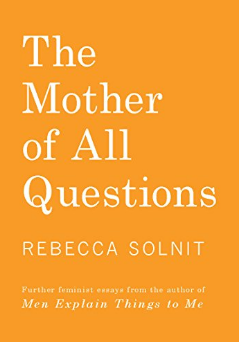
A Short History of Silence
The history of silence is central to women’s history.
Words bring us together, and silence separates us, leaves us bereft of the help or solidarity or just communion that speech can solicit or elicit. Some species of trees spread root systems underground that interconnect the individual trunks and weave the individual trees into a more stable whole that can’t so easily be blown down in the wind. Stories and conversations are like those roots.
…Being unable to tell your story is a living death and sometimes a literal one. If no one listens when you say your ex-husband is trying to kill you, if no one believes you when you say you are in pain, if no one hears you when you say help, if you don’t dare say help, if you have been trained not to bother people by saying help. If you are considered to be out of line when you speak up in a meeting, are not admitted into an institution of power, are subject to irrelevant criticism whose subtext is that women should not be here, or heard. Stories save your life. And stories are your life. We are our stories, stories that can be both prison and the crowbar to break open the door of that prison; we make stories to save ourselves or to trap ourselves or others, stories that lift us up or smash us against the stone wall of our own limits and fears. Liberation is always in part a storytelling process: breaking stories, breaking silences, making new stories. A free person tells her own story. A valued person lives in a society in which her story has a place.
Excerpted from the new book of essays by Rebecca Solnit, The Mother of All Questions (Haymarket Books, 2017).



